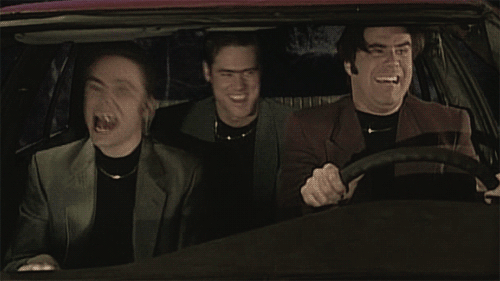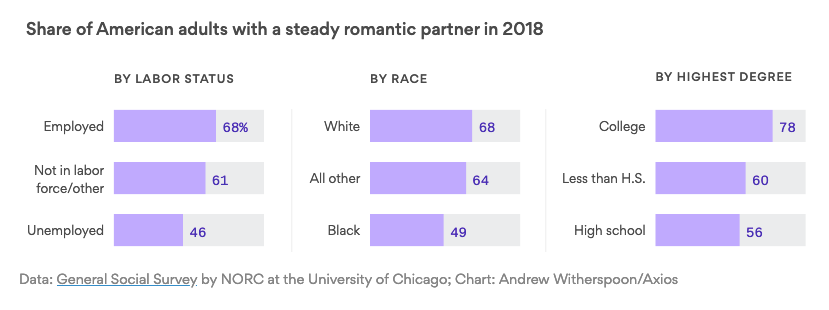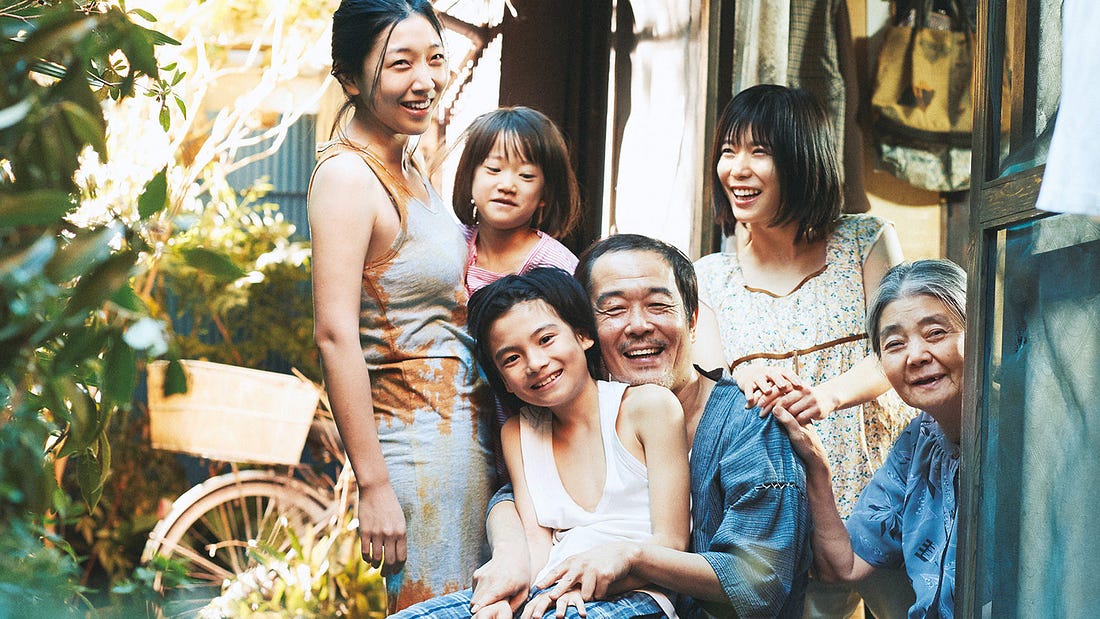What Is Love Baby Don't Hurt Me Gif

(I hope everyone is familiar with reference in the title, if not, enjoy this early 90s pop banger. Also, this SNL skit (Roxbury Boys) ^ is pretty hilarious)
Welcome to the 2nd newsletter everyone! And an extra welcome to the new followers! The start to this journey has already been exciting and intriguing. There were some early snafus, like emails going straight to promotions tabs or people being really confused by the name Udd|iscovery (xD). And, there were some great moments, like hearing different perspectives on the various topics or seeing friends' excitement about this project. This newsletter project is moving in the direction I'd hoped, but it is still a work in progress, so I continue to ask for any constructive feedback.
One suggestion I got last time from a close mentor/friend N was to do deeper dives into focused themes, so thus I shall!
The Systems & Structures Behind Relationships & Love: Many of my close friends know that I am deeply interested in love and relationships. I think the interest stems from a number of factors:
-
My parents have had a genuinely complex marriage
-
A vast majority of my dating life has been hidden from my family
-
I am a pretty empathetic and social person who thoroughly enjoys connecting with people
-
My sibling is not heterosexual
-
And, I am a product of cultures that have differing attitudes towards love
I'm sure there are probably additional reasons, but these core factors often had me confused about romance, and consequently, more open-minded about it all. My skepticism and curiosity around these topics were recently validated by Moira Weigel, a historian and the author of "Labor of Love: The Invention of Dating", who argued in her talk at Google that:
"dating, for better or worse, is the system that our culture has in place for reproducing the world, forming social bonds, for setting up kinship networks. There's very little more that's more serious than that, actually. And I think that there's actually something really kind of sexist and conservative about treating some of these topics as if they don't warrant serious intellectual consideration"
Seriously, check out this talk. It is thought-provoking and historically-based. I provide time-stamps below:
(1:03 - 3:15) The relationship between economic forces and dating. Dating is still a relatively new concept in society, only really emerging when large number of women move from the private space to the public space and take more ownership of their romantic & sexual choices. For example, when women enter the workforce and make $$. Interesting evidence of this correlation is the presence of market logics in our dating vernacular, like phrases like "on-the-market", "out of your league", or "hard-to-get".
(3:15 - 10:00) There has never been a time when there has been no criticism/anxiety around dating. No one knew how they were supposed to "date". Tinder is not killing dating. There is no historically consistent example of "humans have always met and fallen in love this way".
(10:30 - 13:35) Why love, dating, and romance should be subject to intellectual interrogation
(13:36 - 26:35) Dominant narratives around romance, and in turn desirability, are fueled by institutions with their own incentives. There is a general absence of structural & systemic thinking when it comes to dating. Self-help books providing advice like "work a little harder on this aspect of yourself, or change this…" as solutions to dating "problems".
(26:40 - 29:20) The belief by some women that if they just do this right, or just work hard enough then the oppressive structures won't affect them. A mentality that exists in all communities that are historically oppressed.
(29:20 - 40:00) "Should" statements vs Being in touch with one's own desires.
(41:40 - 50:50) Socialized healthcare, child care, and paid family leave would fundamentally reshuffle incentives in heterosexual dating.
(50:50 - 54:00) Differences between queer and hetero dating. The former has more possibility and experimentation without the overbearing scripts of each cis gender role.
-
One Big Takeaway: This talk was powerful because of the scope in which Weigel challenges norms often taken for granted in love, dating, and gender. Hearing the constant flux of dating behavior, often due to economic and technological forces, reifies this notion that many romantic norms are not tied to some biological origin, but rather are up for debate and can be changed. Thinking about these topics in systems, for me the gender binary in particular, also has a dual benefit: 1) it helps free up individuals from the pressure to conform ("should" statements) and 2) creates a common reference point to talk to others about these topics so that they can understand and elaborate one another's intentions in romance.
-
Topic for More Consideration - Weigel's point about queer dating featuring more unique dating arrangements due to the community's self-articulation of their desires without the mainstream scripts of gender and romance is very interesting to me. A friend of mine, D, told me that she has noticed changing dynamics and increased pressures in the LGBTQ+ community once gay marriage had been legalized. Wild, how this heteronormative institution is affecting the LGBTQ+ community. I am excited to learn more/read Weigel's book!
-

A Socio-Economic Component to Love in America
A Love Song:
I have been absolutely floored by Khalid's Intro to his new album Free Spirit. Khalid is at his best when resting on his soft falsetto and lulling you in with his vulnerability. I particularly enjoy how this song crescendoes into a rousing, pained ballad. Then, there's the song's meaning. Khalid is caught between a strong love and the knowledge that he can't quite center this relationship in his life right now. I'm glad Khalid lets you into his head and hear some of the mental cacophony that this turmoil causes. Could (and did) listen this song for hours.
Blood Makes You Related, Love Makes You Family:

The Palme d'Or Winner and Oscar-nominated Japanese film Shoplifters somehow, despite (or because of) all its subtlety and mundanity, wins your heart. The story follows a ragtag group of individuals who live off petty theft and welfare/disability checks after they "adopt" (or kidnap) a young girl with bruise marks over her body. I'm not sure where in the movie I became enamored with Shoplifters, but there are all sorts of quiet gems in this movie.
One central critique leveled in this movie, though, is the question of what constitutes a family. No one in this group of vagrants is related, but they all live together, look out for another, and put up with one another. And, somewhere between their reliance on one another to steal and survive, there are these moments of tender connection, such as providing romantic advice to the confused teenager or teaching the young adopted girl that it is ok to hug. These moments leave the viewer wondering whether these people actually love each other as family, too. As soon as you think you know the answer, an event happens that shines an insidious light on the group, dramatically changing the tone of the film and forcing the viewer to ask the big question with new knowledge.
The "family" in this film end up doing things for one another out of what looks like love. But, this is a family that chose one another, too, standing to gain materially by being together. Typically, we venerate familial love for its unconditionality. A parent ideally will do anything for their child upon birth. When the pseudo-mother-figure of the group implores, "Just because you give birth, does not make you a mother," the film is asking the reader whether a family you have chosen can provide the same love as that of a birth family.
Alright! This was fun! Did anything resonate? What do you think of this new format? Was it still diverse enough content? If you watch any of these things or want to talk more about this stuff, please don't hesitate to reach out over text or email! :)
Shadman
P.S. Please save the newsletter contact in your email contacts so that it does not end up in spam or promotions!
What Is Love Baby Don't Hurt Me Gif
Source: https://shadmansjourney.substack.com/p/what-is-love-baby-dont-hurt-me
0 Response to "What Is Love Baby Don't Hurt Me Gif"
Post a Comment